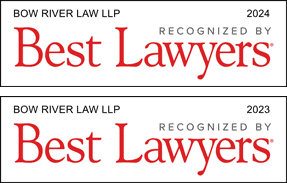- Home
- Services
- Constructive Dismissal
- COVID-19
- Discrimination / Human Rights
- Employee Sued by Employer
- Employment Contracts: Drafting / Review / Negotiation
- Employment Policy Drafting / Review
- Fiduciary Obligations
- Harassment / Bullying
- Independent Contractors
- Just Cause For Termination
- Lay-Offs
- Non-Competition / Non-Solicitation
- Professional Regulation
- Severance Review / Negotiation
- Union / Labour Law
- Workplace Investigations
- Wrongful Dismissal / Unjust Dismissal
- About
- Our Team
- Blog
- Call Now: 587-391-7601
- Contact Us
Just Cause Under Attack! Haack v Secure Energy (Drilling Services) Inc Making It Harder for Employers to Get to Just Cause

The Alberta Court of Queen’s Bench case Haack v Secure Energy (Drilling Services) Inc., 2021 ABQB 82 (Woolley J) is one of the latest and greatest summaries of the law of just cause dismissals in Alberta, amongst several other issues.
Haack v Secure involves an employee whose employment was terminated, purportedly for just cause, for several things, including alleged failings in job performance and for emailing confidential and sensitive company documents to his personal email account that he shared with his wife.
The case affirms the high bar required for employers to establish just cause, and deals with several common issues in this area, including the following:
- Whether an employer is required to investigate prior to deciding it has just cause for poor performance;
- Whether emailing documents to ones personal email account is just cause for dismissal.
Regarding the first issue (Investigations), Justice Woolley ultimately found that an employer does not have a particular investigation it must conduct to determine if it has just cause for poor performance. However, the employer “must investigate to ensure that its impression of the employee’s deficient performance is an accurate one” (at para 420). In other words, if an employer does not take it upon itself to discover the relevant facts around the performance issues, it may be very difficult for an employer to convince a Court that the performance was so deficient to qualify as just cause for dismissal.
Regarding the second issue (Emailing Documents to Oneself), Justice Woolley found the following facts:
- The Plaintiff had been presented with an ultimatum letter on August 27, 2010 which indicated that he either take a particular offer or his employment was going to be terminated, purportedly for cause;
- The Plaintiff then emailed some of the employer’s confidential information and documents to his personal email account that he shared with his wife, in order to help him evaluate the offer made to him. This included information on a proposal to go public, a bid for a contract and other business opportunities, salary information, and information about the calculation of bonuses;
- The Plaintiff did not accept the August 27 proposal, so the employer terminated his employment effective September 2, 2010.
Justice Woolley’s striking choice to ignore the usual rule of settlement privilege in considering the August 27, 2010 proposal was on the basis that it was a “take it or leave it proposition” of “accept this or be fired for cause”, and not a part of a “bona fide attempt to effect a settlement” (at paras 62-69).
With respect to her conclusion on whether emailing confidential documents to oneself was just cause for dismissal, Justice Woolley found that it was not, noting as follows:
[436] The most substantial allegation made by Secure and proven was Mr. Haack e-mailing himself confidential information. Given that this happened after the August 27th meeting, however, this ought to be assessed as post-termination conduct; Marquis Alliance had announced its decision to end the employment agreement by terminating Mr. Haack with cause unless he accepted their offer. Mr. Haack’s e-mailing to himself documentation which he could use to assess the offer made by the company does not seem unreasonable in that context. He did not share the information with others, he destroyed it shortly thereafter, and he told the company that he had done so. In the circumstances this, also, cannot be considered cause. I note as well that Marquis Alliance did not have a confidentiality policy. [underline added]
[437] Even if I treated this as pre-termination conduct, I am still not satisfied that it would justify Mr. Haack’s termination. The contextual factors, and in particular that Mr. Haack needed to assess the offer that had been made, and did not share the documents outside his own home, still exist and make it difficult to view Mr. Haack’s conduct as sufficiently culpable to warrant dismissal. [underline added]
My Take
This decision is significant for many reasons, but the ones I find of particular interest are those summarized above.
The decision on investigations is not exactly new law, but it emphasizes the importance of an employer actually figuring out what the facts are prior to alleging cause for termination. Usually practitioners couch this in terms of a requirement for procedural fairness, and that is valid. I however often use this to show that an employer is being disingenuous in its stated belief that it has lost trust in the employee and that the employment relationship has broken down. To put it rhetorically, how can an employer claim to have lost trust in an employee’s competence if it does not have a relatively complete picture of what actually happened?
The decision on emails is significant to me as a practitioner because defense counsel often argue that when an employee emails herself documentation, that this violates confidentiality protocols and amounts to just cause. Employees often do this on the eve of termination of employment, prior to getting legal advice. I have never gone “all the way” on this particular issue, but I have always been somewhat dismissive of this argument because the conduct is so clearly explained by the circumstances. If the employee shared it with others I might not be so confident.
The Haack v Secure Energy (Drilling Services) Inc., 2021 ABQB 82 decision can be found at the following link on CanLii: https://www.canlii.org/en/ab/abqb/doc/2021/2021abqb82/2021abqb82.html?autocompleteStr=haack%20v%20secure&autocompletePos=1


